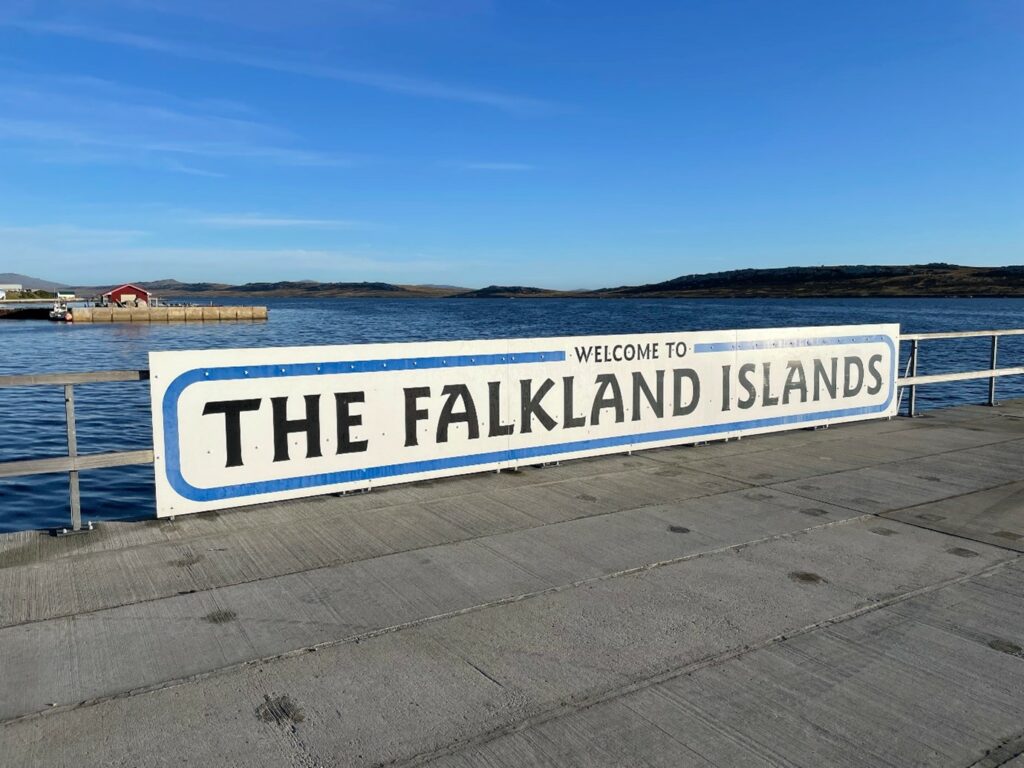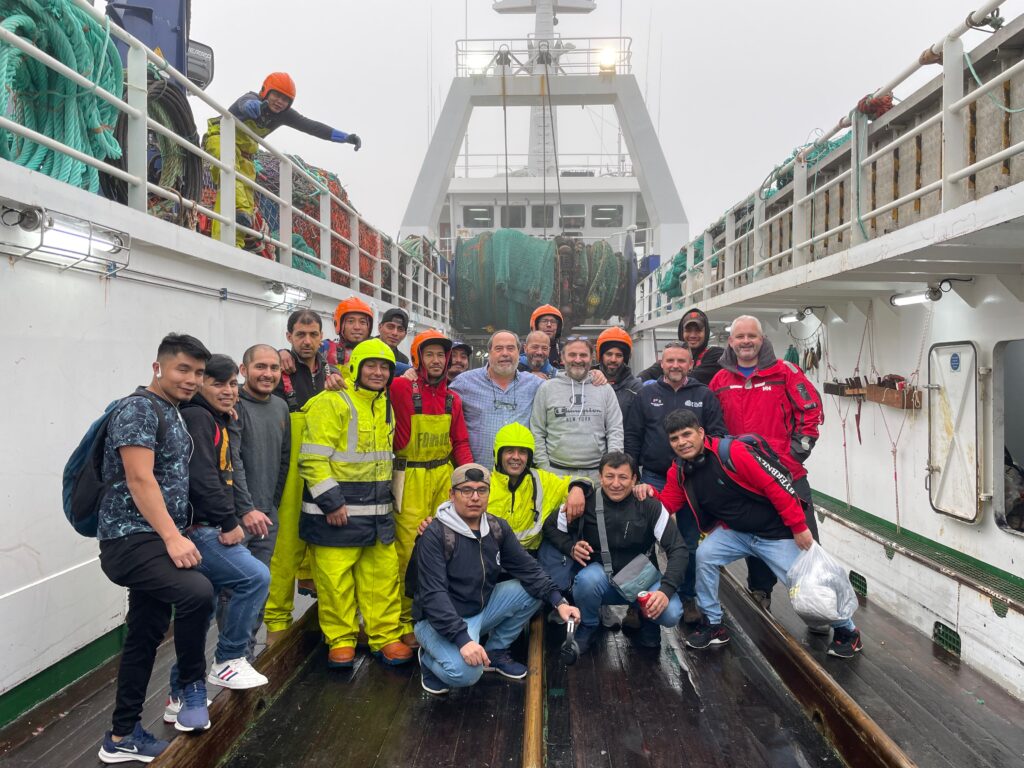

The welfare of fishing crews is a global concern, requiring continuous monitoring, improvement and adaptation to changing working and fishing conditions. The Fisheries Charitable Trust recently supported a Human Rights at Sea (HRAS) exchange visit to the Falkland Islands to speak with, and listen to, fisheries stakeholders. This exchange was driven by international reports of poor crew working and living conditions of foreign crews.

Without effective enforcement at sea, impunity and associated unlawful activities in the waters around the Falkland Islands threaten not just wider ocean conservation but the responsible management and value of the natural resources.
The 12 day visit was successful in gaining initial access to, and direct engagement with, state and non-state actors for fisheries development, policy, enforcement, safety and Government oversight. HRAS were able to assess the ongoing efforts being made to assure both environmental sustainability and improvement predominantly of onboard conditions for foreign-flagged fishing crews.

As part of the Falkland Islands Government’s strategy to develop its monitoring, interdiction, boarding and ocean governance role, the introduction of new capabilities and onboard technologies raises the stakes for all vessels conducting improper or illegal operations in the coastal state’s waters. As part of this strategy, the Falkland Islands fisheries protection vessel aims to increasingly target Illegal, Unreported and Unregulated (IUU) fishing and associated criminal activities in the island’s coastal waters and Economic Exclusion Zone (EEZ).
The developments at state level for improving fishing crew welfare standards and protections in the Falkland Islands are a positive news story, and worthy of HRAS support to profile in the UN system.
HRAS praised the Fishmongers’ grant as it provided the charity with the opportunity to influence in its advocacy work at the international level. It is anticipated that the outputs from the grant will help to initiate a wider ripple effect across maritime / fisheries stakeholders and associated media platforms.